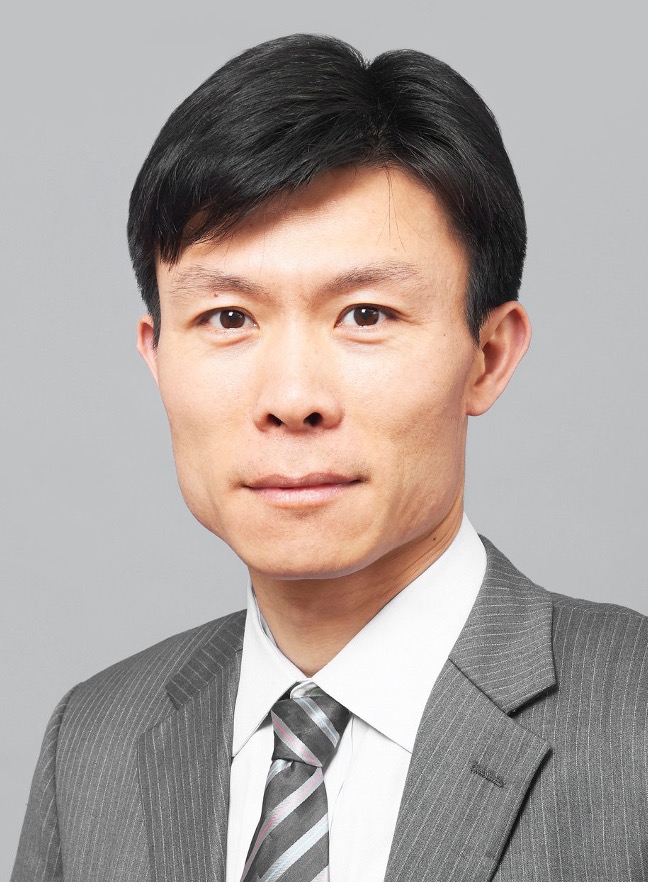

Jun 2024


Speaker 1: Professor Mei Tian
Title: From Human Genome to Human Phenome, the Opportunity of Molecular Imaging-based Precision Medicine
Abstract:
The human phenome represents the entirety of an individual’s phenotypic traits, encompassing physical characteristics, biochemical processes, and behavioral patterns. Understanding the human phenome is crucial for biomedical research as it bridges the gap between genetic information and observable traits, offering insights into disease mechanisms, progression, and individual variability in health and disease. The phenome concept is pivotal in advancing our comprehension of how genetic and environmental factors contribute to health and disease. By mapping the phenome, researchers can identify correlations between specific traits and genetic variations, leading to a better understanding of disease etiology. This comprehensive approach facilitates the discovery of biomarkers, the development of targeted therapies, and the customization of medical treatments to individual patients, thereby enhancing the efficacy of healthcare interventions. The clinical diagnostic progress is further bolstered by an array of diagnostic imaging methods, with molecular imaging via positron emission tomography (PET) standing out as a platform for advanced, non-invasive exploration of metabolic and signaling pathways at the cellular, organ, or cross-organ level. Molecular imaging is a noninvasive technique to visualize, characterize, and measure biological processes at the molecular level in living subjects. It is revolutionizing the field of biomedical research by allowing scientists to observe the dynamics of cellular processes in real-time. These technologies offer unparalleled insights into the molecular underpinnings of diseases, enabling early diagnosis and precise monitoring of treatment responses. The integration of molecular imaging with other diagnostic modalities and -omics technologies has the potential to transform healthcare by providing a more detailed and accurate picture of disease mechanisms.
Bio:
Prof. Mei Tian is the Distinguished Professor of Fudan University, and President of World Molecular Imaging Society (WMIS). She has nearly 30 years post-MD training and practice in radiology, nuclear medicine and molecular imaging. Her group focuses on molecular imaging with a particular emphasis on human major diseases. She received her PhD and post-doc fellowship in Japan, and completed her clinical fellowship on radio-oncology and nuclear oncology at the Department of Radiology, Dana-Farber Cancer Institute/Brigham and Women`s Hospital, Harvard Medical School, and serving as the Assistant Professor at the University of Texas MD Anderson Cancer Center. Her current research interests include development of novel molecular imaging technologies and application in human phenomics, and human major diseases (aging and cancers). Prof. Tian’s group has developed precision PET imaging approach on pediatric epilepsy and MRI-negative pre-operative epilepsy. Furthermore, she has extended their research on brain-machine interface (BMI), internet gaming disorder (IGD), post-traumatic stress disorder (PTSD), etc., and continually to develop big data-based smart diagnosis for neuro-psychiatric disorders, including Epilepsy, AD, PD and others. Her group also develops novel molecular imaging agents or probes for precise theranostics.
Prof. Tian has made innovative and original contributions to the field of medical imaging, published extensively in international journals, edited 2 national textbooks and 2 monographs on Drug delivery applications of noninvasive imaging: validation from biodistribution to sites of action, and Transpathology. She has won scholastic and scientific awards, such as National Distinguished Women Scientist Award, National Distinguished Young Scientist Award, Merit Award (RSNA), International Young Investigator Grant (RSNA), International Development and Education Grant (ASCO), Asian and Oceanian Distinguished Young Investigator Award (JSNM), JSPS fellowship (JSPS) for her extraordinary accomplishments, and selected as the Fellows of the World Molecular Imaging Society (WMIS) and Royal Society of Chemistry (RSC).
Prof. Tian has received many national major grants from the Ministry of Education (MOE), the Ministry of Science and Technology (MOST) and the National Science Foundation of China (NSFC) including the A3 foresight program grant, which is the core grant for international education and collaboration among China, Japan and Korea (A3), to setup a world-class research hub within the Asian Region, which will foster the next generation of talented young researcher in the field of molecular imaging.
Prof. Tian is serving as the President of the World Molecular Imaging Society (WMIS), Vice President of Chinese Society for Cognitive Science (CSCS), and the associate editor or editorial board members of the official journals of leading societies of molecular imaging and nuclear medicine including the WMIS, the Society of Nuclear Medicine and Molecular Imaging (SNMMI), European Association of Nuclear Medicine (EANM), British Society of Nuclear Medicine (BSNM), RSC, and the editorial consultant of The LANCET.

Speaker 2: Professor Yijia Jing
Title: Private roles in enhancing Multi-Level Governance: China’s ‘‘Internet+’’ national strategy
Abstract:
Multi-Level Governance engages players from multiple levels of governments and multiple sectors for better governance results. Private actors may take a collaborative governance approach to facilitate intergovernmental policy making and implementation. Specifically, the rise of private sector economy in China has engendered interests and opportunities for resourceful private actors to link fragmented intergovernmental policy system. Using China’s ‘‘Internet+’’ national strategy as a case, this study finds that internet firms, by adopting collaborative strategies like mediating, brokering, leveraging, and coordinating, contributed significantly to a concerted and swift process of intergovernmental policy making and implementation. Individual, industrial, institutional, and global factors together induced such unusual private activeness. This study offers evidence of China’s Multi-Level Governance practices and identifies an organic linkage in the formation and functioning of Multi-Level Governance.
Bio:
A Chang Jiang Scholar, Seaker Chan Chair Professor in Public Management, Dean of the Institute for Global Public Policy, Co-Director of LSE-Fudan Research Centre for Global Public Policy, and Director of Fudan-Arab Research Centre for Global Development and Governance, Fudan University
He got his BA/MA in Economics from Peking University, MA in Sociology from University of Maryland College Park, and Ph.D. in Public Policy from the Ohio State University. He is founding editor-in-chief of the journal Global Public Policy and Governance and a founding co-editor of the Palgrave book series, Governing China in the 21st Century. He is a co-editor of International Public Management Journal, and was an associate editor of Public Administration Review and editor-in-chief of Chinese journal Fudan Public Administration Review. He served as a vice president of International Research Society for Public Management and an associate director of the Office of Global Partnership of Fudan University.
He conducts research on privatization, governance, social organizations, and collaborative service delivery, and publishes on top journals like Public Administration Review, Journal of Policy Analysis and Management, and Governance.